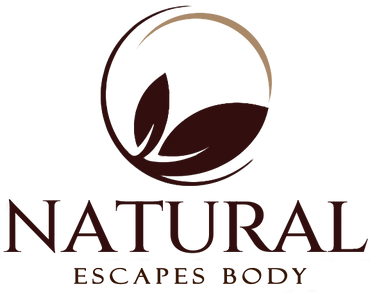Rosemary Essential Oil – Natural Benefits for Skin, Hair & Foot Care
Quick Facts
- Botanical Name: Rosmarinus officinalis
- INCI Name: Rosmarinus Officinalis (Rosemary) Leaf Oil
- Extract Type: Steam-distilled essential oil
- Benefits: Hair growth stimulation, antimicrobial, antioxidant, anti-inflammatory, circulation booster, skin rejuvenation, dandruff control, odor control
- Best Uses: Herbal hair growth remedies, scalp treatments, anti-dandruff products, body lotions, facial serums, plant-based skin treatments, foot soaks, aromatherapy blends
Natural rosemary oil, steam-distilled from the needle-like leaves of the Rosmarinus officinalis shrub, has been treasured in the Mediterranean for centuries as a pure, plant-based skin, hair, and body care remedy. With its fresh, herbaceous scent, this pure rosemary oil for skin and hair offers a unique blend of antioxidants, antimicrobial agents, and circulation boosters that support radiant skin, thicker hair, and refreshed, odor-free feet. Today, it's a favorite in natural skincare, herbal hair growth remedies, and foot care for its proven results and uplifting, invigorating aroma.
What the Science Says
- Clinical research shows pure rosemary essential oil can stimulate hair growth as effectively as 2% minoxidil, with fewer side effects[1].
- Demonstrates broad-spectrum antimicrobial activity against bacteria, fungi, and yeast, supporting healthy skin, scalp, and feet[4].
- Contains carnosic acid, which supports nerve regeneration and helps repair damaged tissue, including skin and hair follicles[2].
- High antioxidant content helps protect skin and hair from oxidative stress and premature aging[4].
Key Nutrients / Compounds
- 1,8-Cineole (Eucalyptol): Antimicrobial, circulation-enhancing oxide with fresh aroma
- Camphor: Potent antimicrobial and stimulant; requires cautious use
- α-Pinene & β-Pinene: Anti-inflammatory monoterpenes with pine-like scent
- Camphene: Supports antimicrobial and stimulating effects
- Limonene: Antimicrobial monoterpene with citrus aroma
- Carnosic Acid: Powerful antioxidant that protects skin cells and hair follicles
- Rosmarinic Acid: Anti-inflammatory phenolic compound
Skin Benefits
- Boosts circulation for a natural, healthy glow
- Helps reduce inflammation and redness in sensitive or acne-prone skin
- Provides strong antioxidant protection against environmental stressors
- Fights acne-causing bacteria and supports clearer skin
- Supports skin firmness and elasticity through collagen-protecting activity
- May reduce appearance of dark spots and uneven tone over time
Hair & Scalp Benefits
- Stimulates hair growth and strengthens hair follicles
- Improves microcirculation to deliver nutrients to roots
- Helps reduce hair shedding from DHT-related loss
- Combats dandruff and scalp infections
- Promotes thicker, healthier-looking hair
Foot Care Benefits
- Neutralizes foot odor with natural antimicrobial properties
- Helps combat athlete’s foot and other fungal concerns
- Encourages circulation for warmer, more comfortable feet
- Soothes tired or swollen feet after long periods of standing
Why Natural Escapes Body Uses It
At Natural Escapes Body, we choose natural rosemary essential oil for its exceptional rejuvenating effects from head to toe. In hair care, this herbal hair growth remedy revitalizes the scalp and promotes healthy, fuller hair growth. In our Peppermint Plus Foot Repair Cream, it refreshes, deodorizes, and soothes tired feet, all while providing a fresh, uplifting scent our customers love.
Products Featuring This Ingredient
- Peppermint Plus Foot Repair Cream
- Peppermint, Tea Tree & Rosemary Shampoo
- Peppermint, Tea Tree & Rosemary Conditioner
Safety Notes
- Comedogenic Rating: 1 (low risk of clogging pores)
- Do not use if you have epilepsy or seizure disorders – contains camphor, a known convulsant
- Not recommended during pregnancy or breastfeeding
- Avoid use with high blood pressure or bleeding disorders
- Always dilute to ≤3% concentration before skin or scalp application
- Patch test prior to use to check for sensitivity
- Keep away from children; toxic if ingested
- Avoid if allergic to aspirin
FAQs
How long should I leave rosemary oil on my hair or skin?
For hair, experts recommend leaving diluted rosemary oil on for at least 2–3 hours before rinsing, or overnight for deeper nourishment. For skin care, it can be applied as part of a leave-on cream or serum, or rinsed off after 20–30 minutes in a mask treatment.
Can rosemary oil help with dandruff or an itchy scalp?
Yes. Rosemary oil’s natural antimicrobial and anti-inflammatory properties help combat dandruff-causing yeast and soothe irritation, making it an effective scalp-care ingredient.
Does rosemary oil prevent or slow hair thinning?
Studies suggest rosemary oil can block DHT, a hormone linked to hair loss, and improve circulation to the follicles—helping slow shedding and support thicker growth over time.
Can rosemary oil improve skin tone and texture?
Yes. Its antioxidants protect collagen and elastin, while its circulation-boosting effect encourages a brighter, more even complexion.
How should I dilute rosemary oil for skin or hair care?
For facial and body products, use 0.5–1% in a carrier oil or lotion. For hair and scalp treatments, use 1–3% dilution. Always patch test first.
Can I use rosemary oil daily?
Most people can use diluted rosemary oil daily in skin, hair, or foot products, but sensitive skin types may prefer 2–3 times per week. Monitor your skin’s response and adjust as needed.
Can rosemary oil help with foot odor?
Yes. Rosemary oil’s natural antimicrobial compounds help neutralize odor-causing bacteria, making it a refreshing addition to foot soaks, sprays, or creams.
Is rosemary oil good for athlete’s foot?
It may help. Rosemary oil has antifungal properties that can support athlete’s foot treatment when combined with proper hygiene and antifungal care. Always dilute before applying to skin.
Can rosemary oil improve circulation in the feet?
Yes. Its stimulating effects can encourage better blood flow, making it a great ingredient for foot massage oils, especially for tired or cold feet.
How can I use rosemary oil in a foot soak?
Add 3–5 drops of rosemary essential oil to a bowl of warm water, mixing it first with a teaspoon of carrier oil or Epsom salts to disperse the oil. Soak feet for 15–20 minutes for odor control, relaxation, and skin softening.
Scientific References
- Panahi, Y., et al. (2015). Rosemary oil vs minoxidil 2% for the treatment of androgenetic alopecia: a randomized comparative trial. Skinmed, 13(1), 15-21.
- Formulation and evaluation of hair growth enhancing effects of oleogels made from Rosemary and Cedar wood oils. South African Journal of Botany, 2022.
- Bahr, T.A., et al. (2019). The Effects of Various Essential Oils on Epilepsy and Acute Seizure: A Systematic Review. Evidence-Based Complementary and Alternative Medicine.
- Nieto, G., et al. (2018). Antioxidant and antimicrobial properties of rosemary (Rosmarinus officinalis, L.): A Review. Medicines, 5(3), 98.
- Tisserand Institute - Rosemary Essential Oil Hair Growth Research
- WebMD - Rosemary Safety and Contraindications
- Cleveland Clinic - Rosemary Oil for Hair Growth

